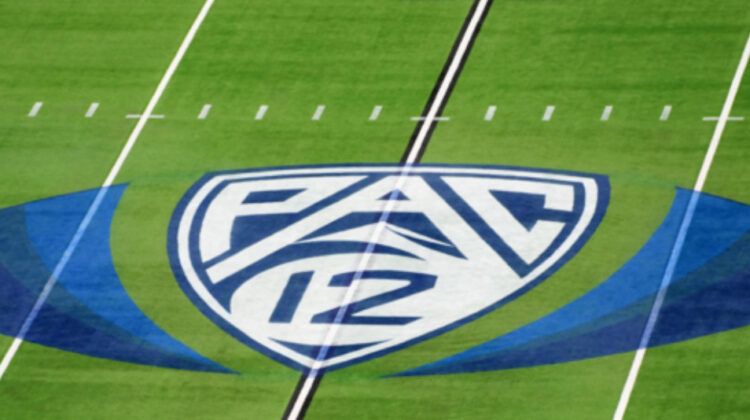The Hotline mailbag is published every Friday. Send questions to pac12hotline@bayareanewsgroup.com or hit me on Twitter: @WilnerHotline.
Please note: Some questions have been edited for clarity and brevity.
Why is the Pac-12 waiting on other conferences to set the media valuation market? First, they waited on the Big Ten to set the market. Now, it has been reported that they are waiting on the Big 12? — @Hmckee53
An excellent question in that it touches on several realignment issues.
The Big Ten’s media contract expires next summer, one year before the Pac-12’s. As a result, the Big Ten was able to begin, and conclude, the negotiation process first. There was nothing the Pac-12 could do about that — nothing that could have compelled ESPN and Fox to come to the table.
In the same fashion, the Pac-12’s media contracts expire in the summer of 2024, one year before the Big 12’s deals. That allowed the Pac-12 to enter formal negotiations first, and the process is ongoing.
The Big 12 has attempted to expedite its timeline and cut a deal before the Pac-12 — an aggressive and potentially shrewd move by commissioner Brett Yormark.
However, the Big 12 remains limited in this regard: It can extend current agreements with Fox and ESPN if the networks agree, but the Big 12 cannot take its rights to the open market for another 16-to-18 months.
An extension would bring security but could result in lower valuations; ESPN and Fox would have no competition and could set the price.
As Yormark told Texas-based talk show host David Smoak, the decision will be based largely on economics.
We took that to mean a lowball offer from ESPN and Fox would probably force the Big 12 to abort the early extension and wait for the negotiations to begin as scheduled in 2024.
But be clear on this: It’s not an either/or scenario for ESPN and Fox.
The networks don’t have a single pot of cash available to whichever conference (the Pac-12 or Big 12) agrees to a deal first. That’s simply not how the networks run their businesses. They can pay both.
And on that front, our belief hasn’t changed: The conferences are comparable in valuation.
However, the Hotline also believes an early extension of the Big 12’s current deals will result in below-market contracts that distribute less revenue per school than whatever agreement the Pac-12 reaches.
And the durations will be comparable, as well. The days of conferences signing 10- or 12- year media rights contracts are over. Both Yormark and Kliavkoff will aim for short- or medium-term deals.
Our best guess on the valuations under the different scenarios:
— Big 12 without early extension: $38 million to $45 million per school
— Pac-12: $35 million to $40 million per school
— Big 12 with early extension: $33 million to $38 million per school
It’s difficult to envision a scenario in which the Big 12 could offer Arizona, ASU, Colorado and Utah substantially better terms than they would receive staying in the Pac-12.
Instead, Yormark’s move would be a stability play: Join us before the Pac-12 collapses.
So once again, it all comes down to the Big Ten and whether another round of expansion is coming this fall.
If the door is closed (for the time being) and Oregon and Washington are willing to sign a grant-of-rights agreement with the Pac-12, the Four Corners schools are likely to stay put.
We continue to believe that is the most likely outcome.
What are the odds the Pac-12 invites San Diego State before the end of year? — @WeDemTecs
If you mean the end of the calendar year, the odds are probably a bit long.
Our hunch is the Pac-12 won’t agree to a new media rights contract until the second half of November or early December, which doesn’t leave much time for the complicated expansion process.
Granted, the conference has been assessing expansion options this fall while negotiating a new media deal. But there would be plenty of work required on the former upon the completion of the latter.
If your timeline is the current academic year, then the odds are fairly strong of an invitation being extended.
We continue to believe San Diego State is the best option for a variety of reasons. But the array of scenarios is wide.
When do you think the Pac-12 media rights will catch the Big Ten’s? — @ArtDirectorBYU
That topic, based on Kliavkoff’s eye-opening comments earlier this week, was addressed on the Hotline a few hours ago.
We believe he’s using a lower valuation figure for the Big Ten’s media deal than what has been widely reported over the past two months.
Even if Kliavkoff is right about the true valuation, it’s difficult to envision a path to equality. In a best-case scenario, the Pac-12 would come close to the Big Ten in annual media revenue, but only for one year.
Read our full breakdown here.
How do you think Kliavkoff is viewed nationally? How do you think he is viewed within the Pac-12? — @Jalex0077
My assumption is the question refers to how Kliavkoff is viewed within the college sports industry (other commissioners, athletic directors, NCAA officials, etc.) and not by fans.
And I’m not sure there’s much difference between the perception of Kliavkoff inside and outside the Pac-12.
Based on our conversations with industry sources over the past 16 months — don’t forget: his tenure began July 1, 2021 — the answer comes in four parts:
1. He is well liked personally.
2. He inherited a difficult, if not impossible situation with regard to the Pac-12 strategic situation. (By that we mean the lagging media rights revenue, the rigid contracts with ESPN and Fox, the failed distribution of the Pac-12 Networks and the sagging on-field performance by the collective.)
3. He was naive with regard to the alliance and misread both the Big Ten threat and USC’s allegiance — issues that arose partly, if not largely from his lack of experience in college sports. (That said, there comes a time when you have no choice but to take someone at his/her word.)
4. The Kliavkoff narrative is incomplete. His tenure will be defined by the outcome of the Pac-12 media rights negotiations and whether he can craft a deal that will keep the 10 schools together and position them to thrive into the future.
What would happen if USC and Utah were to win out in conference play, and Oregon ends up with one conference loss to Utah? — Dave Hayashida
In this situation, the three teams would be tied with 8-1 records.
Even though Utah would own wins over both the Trojans and Ducks, the head-to-head results seemingly would not apply because Oregon and USC don’t play each other during the regular season.
Here’s the policy on multi-team ties:
— Head-to-head (best cumulative win percentage in games among the tied teams). If not every tied team has played each other, go to step 2.
— Win percentage against all common conference opponents (must be common among all teams involved in the tie)
— Record against the next highest placed common opponent in the standings (based on record in all games played within the conference), proceeding through the standings.
Given Utah’s success against USC with its tight end (Dalton Kincaid), how big of a difference in Oregon State’s season would a healthy Luke Musgrave have been for that close loss? — @Jschamber2
The Beavers were a few plays away — on offense — from toppling the Trojans during their riveting September duel. If either of two drives late in the game had ended with points, instead of interceptions, OSU might have won.
Considering Musgrave was quarterback Chance Nolan’s favorite target in the two games before the knee injury, I’d argue his presence would have made a significant difference in the fourth quarter of the 17-14 loss to the Trojans.
And if the Beavers had won, they would be smack in the middle of the conference race, not on the outskirts.
That said, every team must navigate injuries.
Who wins if USC and Oregon play at a neutral site? — @OmarStringer
Oregon, especially if they played now.
By the first Friday of December, our view could change.
Support the Hotline: Receive three months of unlimited access for just 99 cents. Yep, that’s 99 cents for 90 days, with the option to cancel anytime. Details are here, and thanks for your support.
*** Send suggestions, comments and tips (confidentiality guaranteed) to pac12hotline@bayareanewsgroup.com or call 408-920-5716
*** Follow me on Twitter: @WilnerHotline
*** Pac-12 Hotline is not endorsed or sponsored by the Pac-12 Conference, and the views expressed herein do not necessarily reflect the views of the Conference.
Related posts:
 Wilner Hotline: Sunday Reactions to Pac-12 Saturday, Devilish Downturn
Wilner Hotline: Sunday Reactions to Pac-12 Saturday, Devilish Downturn
 Seeking integrity: How the Pac-12 moved to protect itself from a gambling scandal
Seeking integrity: How the Pac-12 moved to protect itself from a gambling scandal
 Pac-12 media rights: The home stretch arrives (or maybe not) as changes come to the power structure
Pac-12 media rights: The home stretch arrives (or maybe not) as changes come to the power structure

(AP Photo/David Zalubowski)
Pac-12 survival: All eyes on Colorado as university regents meet to discuss Big 12 move
